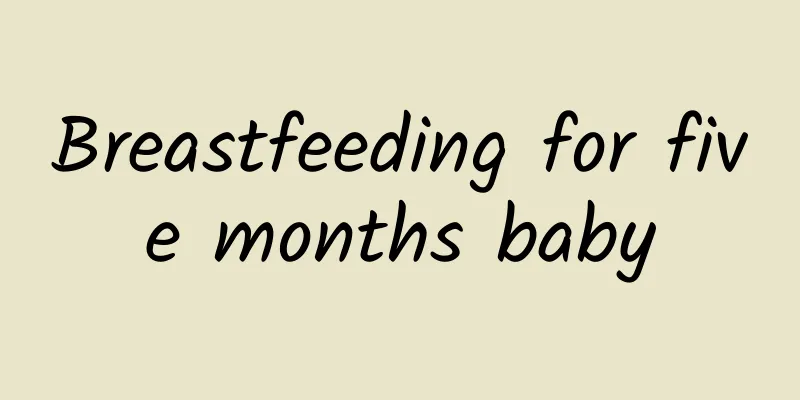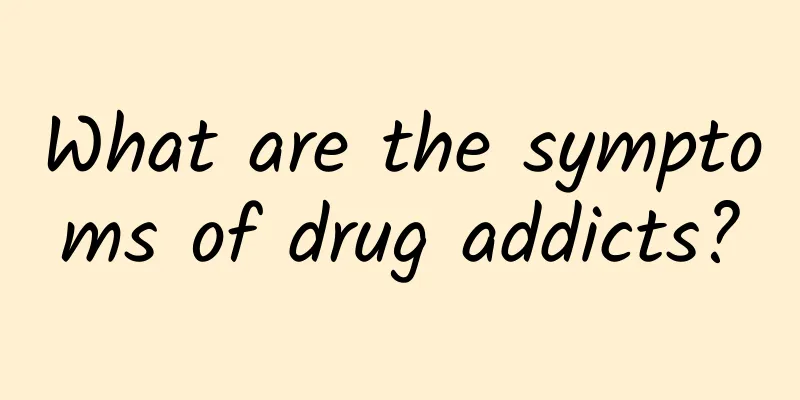Premonitions of myocardial infarction

|
Myocardial infarction is a very dangerous acute blockage. When faced with such a situation, you should discover it early and take measures early. It will show signs first. No matter what discomfort you feel in your body, do not ignore it, as it may lead to a heart attack. Myocardial infarction is not scary. What is scary is that a myocardial infarction is not treated in time or is not discovered at all. Such patients should be taken very seriously and should be reminded not to engage in any stimulating activities to prevent sudden cardiac arrest. Myocardial infarction is a partial myocardial ischemic necrosis caused by acute occlusion of the coronary arteries. Clinical manifestations include severe and persistent chest pain, increased serum myocardial enzyme activity, and a series of characteristic electrocardiogram changes reflecting acute myocardial injury, ischemia and necrosis. Here are some symptoms of myocardial infarction. Myocardial infarction is often complicated by arrhythmias and acute circulatory dysfunction and is a serious type of coronary heart disease. According to the clinical course and electrocardiogram manifestations, this disease can be divided into three stages: acute, subacute and chronic. However, clinically, the symptoms of myocardial infarction mainly appear in the acute stage, and some patients also have some precursor symptoms. 1. Premonitory symptoms of myocardial infarction About 1/3 of patients with myocardial infarction suffer a sudden onset without any warning symptoms, while 2/3 of patients have warning symptoms before the onset of the disease. Sudden onset or more severe and frequent angina pectoris than before, longer duration than before, unclear cause, poor efficacy of nitroglycerin, angina pectoris accompanied by nausea, vomiting, sweating, bradycardia, acute heart failure, severe arrhythmia or large fluctuations in blood pressure, etc., may all be precursor symptoms of myocardial infarction. If timely and active treatment is given at this time, it is possible for some patients to avoid myocardial infarction. 2. Symptoms of myocardial infarction: The initial symptoms of acute myocardial infarction vary greatly. Some have an acute onset and severe symptoms; some have mild symptoms and go unnoticed and no medical treatment is sought; some have no obvious symptoms and are asymptomatic myocardial infarction. 1 . pain Pain is the most common and earliest symptom of myocardial infarction, and is also the most prominent initial symptom. The location, radiation site, and nature of the pain are similar to those of past angina pectoris, but the degree of pain is severe and often unbearable. The pain is mainly felt behind the sternum or in front of the heart, and sometimes there is squeezing pain or a feeling of tightness in the upper abdomen or xiphoid process. It is often accompanied by profuse sweating, fear, and a feeling of impending death. The duration is greater than 30 minutes and can be as long as several hours or longer. Not relieved by rest or nitroglycerin. 2 . Gastrointestinal symptoms Gastrointestinal symptoms are also a manifestation of myocardial infarction symptoms, and gastrointestinal symptoms mainly include nausea and vomiting. Occasionally, diarrhea and persistent hiccups occur due to stimulation of the phrenic nerve. 3 . Syncope Patients with myocardial infarction may suddenly experience syncope, which is common in the early stages of acute inferior wall myocardial infarction. 4 . Cardiac asthma It is common in extensive anterior wall myocardial infarction, followed by various serious arrhythmias. It often occurs within 24 hours of myocardial infarction and is one of the important causes of early death. 5. Heart failure Myocardial infarction can also lead to heart failure, which is mainly acute left ventricular failure, which can occur within the first few days of onset or during the stage of improvement of pain and shock. The incidence rate is approximately 20%-48%, which is caused by the significant weakening of cardiac contractility and decreased compliance after infarction. Patients experience dyspnea, cough, cyanosis, irritability, etc. In severe cases, pulmonary edema or right heart failure may occur, with distended neck veins, swollen and painful liver, and edema. Patients with right ventricular myocardial infarction may show symptoms of right heart failure at the beginning. 6 . Arrhythmias Arrhythmia is also a symptom of myocardial infarction. Arrhythmias caused by myocardial infarction do not cause chest pain or the pain is not obvious, but they present with various serious arrhythmias. It usually occurs within 24 hours of onset and is one of the important causes of early death. 7 . Symptoms of cerebral ischemia Symptoms of myocardial infarction include dizziness, nausea, vomiting, slow consciousness or confusion. It is mostly caused by diffuse cerebral ischemia due to decreased cardiac output after myocardial infarction, and is more common in elderly patients with cerebral arteriosclerosis. 8. Systemic symptoms The systemic symptoms of myocardial infarction are mainly fever, accompanied by tachycardia, leukocytosis and increased erythrocyte sedimentation rate, which are caused by the absorption of necrotic substances. It usually occurs 24-48 hours after the pain occurs, and the severity is often positively correlated with the range of infarction. The body temperature is generally around 38°C, rarely exceeding 39°C, and lasts for about a week. Of course, the symptoms of myocardial infarction vary from person to person, and there are many other specific manifestations. Therefore, patients with coronary heart disease must pay attention to changes in their self-perception in daily life. If they feel unwell, they should seek medical attention in time. |
<<: Can I eat wild rice during breastfeeding?
>>: How to protect kidney function effectively
Recommend
Where is the popliteal fossa located in the body
Where is the popliteal fossa located in the body?...
What is the effect of Chinese medicine and acupuncture in treating cerebral palsy in children?
If some parents encounter a disease such as cereb...
What is liver cyst?
Liver cyst is a common benign disease, which main...
What to do if you have ear and eye allergies
Many friends can finally wear various accessories...
How to Improve Bone Density
Nowadays, people pay special attention to their p...
How does cerebral thrombosis form?
Cerebral thrombosis is now a very common disease....
What causes pain on the right side of the throat?
The most common cause of pain on the right side o...
How to reduce swelling after hitting the head
In daily life, it is easy to get bumps and bruise...
What is aroma moxibustion and how to perform it? What are its uses?
Since the beginning of the dog days, more and mor...
What does spontaneous sweating mean?
Exterior deficiency means frequent sweating. Due ...
What does it mean to analyze peripheral neuropathy?
Peripheral neuropathy is a problem that cannot be...
What to do if your butt hurts after being drowned
If your buttocks are hurt by flooding, you first ...
Why is my throat dry and has a foreign body sensation?
In daily life, dryness and foreign body sensation...
Whitening and wrinkle removal methods, homemade whitening and wrinkle removal mask
As the saying goes: A white complexion can concea...
What to do if you have ulcers on the inside of your lips? Here are some tips for treating ulcers
I believe many people have experienced ulcers in ...









